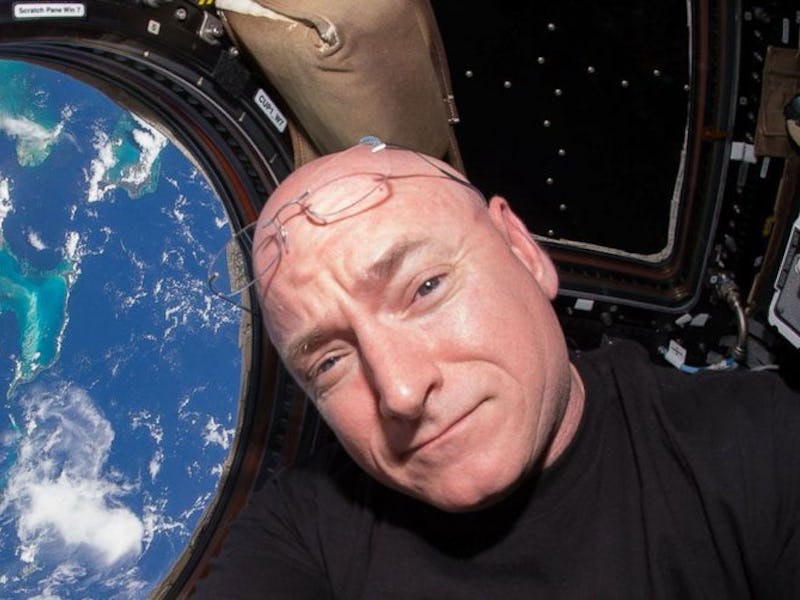"I Could Go Another 100 Days": Astronaut Scott Kelly Reflects on His Year In Space
During his last week in space, Kelly is still in great spirits.

When March 1 rolls around and Scott Kelly comes back to Earth, he’ll hold the American record for the longest stint in space. He’s made the most of his last week aboard the International Space Station, playing virtual reality games in zero gravity with fellow astronaut Tim Peake, getting chased around by a gorilla, and finishing up some science here and there. (And, as usual, he’s still taking killer photos.)
On Thursday, Kelly held his final press conference from the ISS, answering questions about his 340-day sojourn in space and what his Earthbound future holds.
His legacy
Kelly wants his mission to underscore how much audacity and willpower space exploration requires. “We decide to do hard things away from Earth, and this is one of them,” he said. Furthermore, he hopes his work can help make it easier to plan for how future astronauts will get to the red planet. “This is one of the stepping stones for landing on Mars in the future.”
He’s not tired
Spaceflight can do a number on your body and mind, but Kelly doesn’t seem exhausted in the slightest. “I could go another 100 days,” he said. “I could go another year if I had to. Physically, I feel pretty good.”
Still, homesickness is real in space. “The hardest part is being isolated in a physical sense from people on the ground that are important to you,” said Kelly. For that reason, he’s definitely looking forward to going home.
Yet he’s not at 100 percent
One of the main goals behind Kelly’s year was to examine the effects of long-term space duration on the body. And though Kelly feels good, he says the year in space has affected his vision and given him some cabin fever. Space is still “a harsh environment,” he said. “Even after a year … you don’t feel perfectly normal.” He compared it to living in the woods and making due without amenities like running water.
There’s also the effect on his psyche. While Kelly said he’s been doing well mentally, he thinks that a trip to Mars — in which the spacecraft will already be much smaller and more compact — will need more room for astronauts to unwind. Kelly spent half his time aboard the ISS in the crew quarters: “a box basically the size of a phone booth.” Kelly thinks NASA will need to design a similar space in a Mars-bound spacecraft that’s bigger, to help reduce fatigue and stress.
He’s now a bigger environmentalist
Kelly said that after seeing Earth from orbit every day for nearly a year, he feels “more like an environmentalist.” He’s noticed portions of the planet “covered in pollution all the time,” and storm systems “bigger than we’ve seen in the past.”
“This is a human effect,” he said. “You can tell that’s not a natural phenomenon.”
Still, he’s optimistic that we can work to remediate these problems. “We can do amazing things if we put our minds to it. If we can dream it, we can make it so.”
He’s not yet done with the mission — or with NASA
When Kelly gets back, he’s going to have to take part in a ton of medical and physiological testing that will assess how space has altered his physiology and mental well-being. This includes a slew of trials he says are “kind of like an obstacle course,” to gauge how well he can move. Combined with the “twin studies” research that he and his astronaut brother Mark are a part of, Kelly’s work for this mission doesn’t technically end for another year after he gets back — maybe even longer.
Kelly isn’t concerned. “I will always try to stay involved with the space program in any capacity that will be allowed,” he said. “This has been my life … and I want it to be part of the rest of my life.”
Overall, it’s been a long journey for Kelly. When asked about the first six months, “It seems like it was so, so long ago,” he said. He spent the mission thinking not about time, but about every task or milestone that was next.
“The next milestone is coming home,” said Kelly. After that? “I’m going to go home and jump in my pool.”